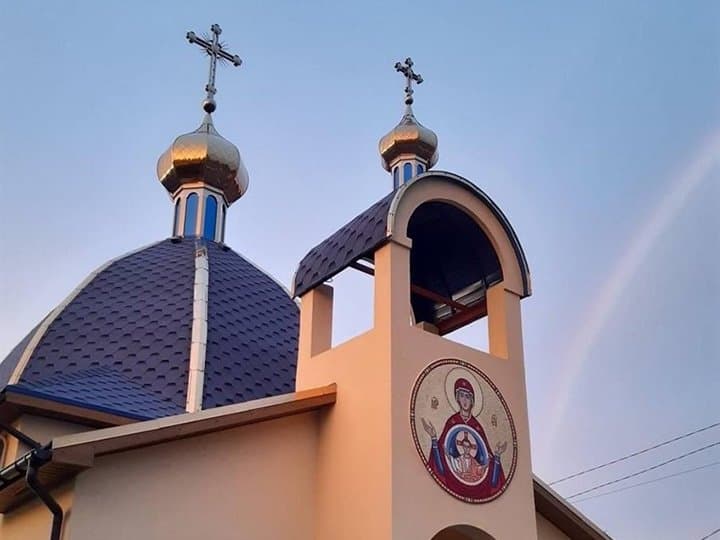ROME – After two of its clergy were detained by Russian forces last week, the Ukrainian Greek Catholic Exarchate of Donetsk has warned they could be victims of torture and has called for their immediate release.
In a Nov. 30 statement labeled as “urgent,” the exarchate voiced their solidarity with the clerics, who serve in the city of Berdyansk, in Ukraine’s Zaporizhzhia region.
The priests are Father Ivan Levytskyi, who serves as abbot of the Nativity of the Holy Theotokos parish, and Father Bohdan Geleta, who assists at the parish.
They were detained several days ago for allegedly housing explosives with the intention to commit “guerilla” activities against the Russian army.
In a previous statement, the Donetsk Exarchate called the allegations both “false” and “slanderous,” as the clerics had never ventured outside the realm of their pastoral responsibilities, and that such fabrications were eerily similar to methods typical of Soviet-era propaganda used to discredit clergy.
The use of these strategies, the exarchate said, is indicative of a “complete disregard for the fundamental principles of human rights.”
RELATED: As war drags on, Ukraine bishops declare a ‘Year of Mercy’
In their statement Wednesday, the exarchate said that to date, “the fathers are still under arrest,” and there is “no contact with them.”
“We assume that the priests may be tortured in order to get a confession from them about ‘keeping weapons,’ which they were previously accused of by representatives of the ‘administration’ installed by Russian troops.”
The reference to the Russian-installed administration refers to the regime put into place in Donetsk after Russian President Vladimir Putin in September held what have been dubbed by many in the international community as sham referendums in the Ukrainian regions of Donetsk, Luhansk, Kherson and Zaporizhzhia.
During the referenda, Russia supporters, flanked by Russian troops, went door-to-door polling residents on whether they wished for their province to be annexed. The outcome, which many have said was manipulated, came out in favor.
Putin then signed documents for the seizure of those regions and in a unanimous vote Oct. 3, the State Duma, Russia’s lower house of parliament, formally approved the seizure.
In their statement, the Donetsk exarchate said that a “confession” might be necessary in order for Russia’s “so-called ‘court’ to pass sentence and punish our clergy illegally.”
“The Donetsk Exarchate condemns such methods of fighting the Church, which are a flagrant violation of international law, in particular the laws and customs of war, and demands the immediate release” of the priests.
An additional concern is Geleta’s health, they said, saying he suffers from an illness which requires him to take special medications that he likely no longer has access to.
Therefore, “Being under arrest and being tortured pose a very serious threat to his life,” they said.
The statement insisted that all clergy within Donetsk Exarchate of the Ukrainian Greek-Catholic Church in Berdyansk, since the war first broke out following Russia’s Feb. 24 invasion, have “at the place of their priestly service and performed their pastoral duties in accordance with the canons of the Church.”
“Once again, we appeal to the authorities, public human rights organizations and mass media to make every effort to facilitate the liberation of our fathers,” the exarchate said, and asked faithful to pray for the priests’ intentions, and to “spread information as much as possible.”
As a result of the war, which is now in its ninth month, thousands have died, including many civilians, and millions have been displaced by the ongoing violence, both internally and those who have fled abroad and are living as refugees.
In recent weeks, Ukrainian officials have condemned Russia for targeting the country’s energy infrastructure, causing major power outages at a time when temperatures are rapidly dropping with the onset of winter.
With no clear end to hostilities in sight, the Roman and Greek Catholic bishops of Ukraine recently announced a “Year of Mercy” lasting from Nov. 27, 2022, until the Feast of Christ the King on Nov. 26, 2023, and which will be dedicated to showing solidarity with those in need, particularly those most impacted by the war.
Follow Elise Ann Allen on Twitter: @eliseannallen












